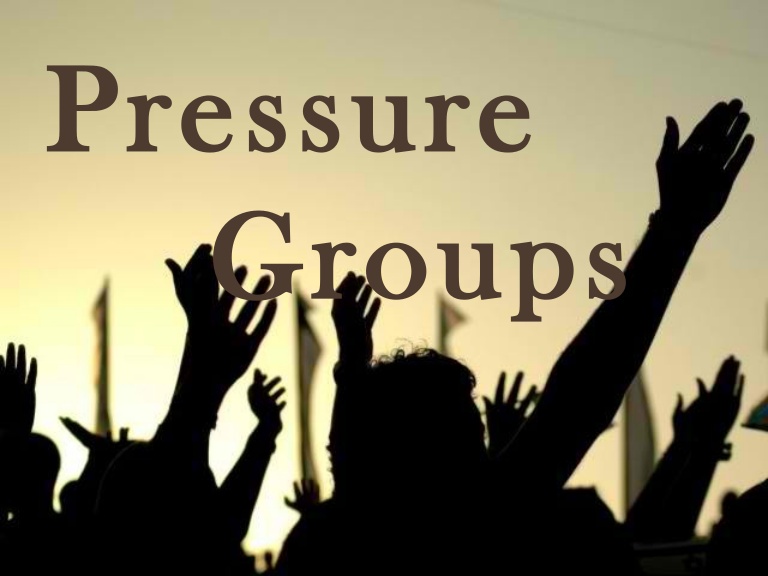Types of Pressure Groups in Nigeria
Pressure groups have grown to be a crucial component of public administration and governance. These organizations strive to exert pressure on a government’s administrative and political structure. They seek to either advance their interests or, at the very least, prevent them from being pushed to the margins. Without taking into account their opinions, no system can operate efficiently. The impact on the government process is expected to be extremely high in developing and underdeveloped countries like Nigeria in which there is a shortage of different resources on the one hand and severe poverty and hardship on the other side. The structural equilibrium depends on pressure groups, which act as a regulating factor. This indicates that they carry out the task of system maintenance. You will learn more about pressure groups in this article, including its definition and several subcategories in Nigeria.

PRESSURE GROUP TYPES IN NIGERIA
Below, the various pressure groups in Nigeria will be discussed.
PROFESSIONAL OR OCCUPATIONAL PRESSURE GROUP
Pressure groups that consist of only people in the same profession or line of work are known as professional or occupational pressure groups. This pressure group seeks to advance their professional interests and defend the industry’s end aim.
They frequently retaliate and struggle against measures that the government enacts that do not benefit them. Despite the number of members in this kind of pressure organization may not be huge, they have the influence through their activities to be able to succeed.
The Nigerian Medical Association (NMA), the Nigerian Union of Teachers (NUT), the Nigerian Bar Association (NBA), and numerous more organizations are examples of pressure groups that are professional or occupational.
ECONOMIC PRESSURE GROUP
A pressure group classified as a “economic pressure group” works to safeguard and protect its members’ financial interests. The general welfare of the populace is a concern for this kind of pressure organization. They make sure that government initiatives favor the public’ economic welfare. To make sure their goals are achieved, they attempt to influence these governmental policies.
Manufacturers and producers are probably found in this kind of pressure group. Members of economic pressure groups oppose any unfavorable legislation that harms the populace. Examples of this type of pressure organization are the Nigerian Association of Chambers of Commerce, Industry, Mines, and Agriculture and the Manufacturers Association of Nigeria (MAN) (NACCIMA).
RELIGIOUS PRESSURE GROUP
A religious pressure group is created to safeguard and protect the members’ religious concerns. They accomplish this by influence the government policies in their favor. This kind of pressure organization fights to defend its religious traditions and ideas. Members of religious pressure groups work to influence public policy so that they are always favorable to their religion.
The Nigerian Supreme Council for Islamic Affairs and the Christian Association of Nigeria (CAN) are two examples of religious pressure groups in Nigeria (NSCIA). The Christian Association of Nigeria (CAN) is a powerful religious organization that stands up for and safeguards the various religious practices of Nigerian Christians. Additionally, they oppose any government program that is unfavorable to them. The Nigerian Supreme Council for Islamic Affairs (NSCIA), on the other side, is a pressure group that advocates for and supports Nigerian Muslims’ religious practices and beliefs.
SOCIAL PRESSURE GROUP
Social pressure groups are mostly established by young people in the country. This is another particular type of pressure group. It encompasses people who are protecting and promoting their causes in order to influence government policies that benefit its constituents. The Red Cross Society, Boys Scouts of America, Girls Brigade, and many other organizations are examples of this kind of pressure group.
EDUCATIONAL PRESSURE GROUP
Education-related pressure groups work to safeguard and uphold their members’ educational rights and interests. They accomplish this through influencing government policies that are unfavorable to them and battling against them in order to further their desired goals.
The Academic Staff Union of Universities (ASUU), Academic Staff Union of Polytechnics (ASUP), National Association of Nigerian Students (NANS), and others are a few examples of pressure groups in education.
ANOMIC PRESSURE GROUP
Pressure organizations that lack structure and organization are known as anomic pressure groups. They have a reputation for fighting for the goals of their organizations by rallies, protests, strikes, violence, and other vices. Members of these pressure organizations typically plan protests and public demonstrations to quickly accomplish a similar objective.
PROMOTIONAL PRESSURE GROUP
Pressure organizations created for a purpose other than the members’ direct advantage are known as promotional pressure groups. They make an effort to advance a shared objective that benefits society’s citizens. Human rights organizations, organizations that fight against prejudice, and several more organizations are examples of promotional pressure groups.
ETHNIC PRESSURE GROUP
Pressure groups that work for the interests of their ethnic community as a whole are known as ethnic pressure groups. Good example of ethnic pressure organizations in Nigeria include the Arewa Consultative Forum (ACF), Ohanaeze Ndigbo, Ijaw Youth Council (IJC), and numerous other organizations.
CONCLUSION
A pressure group is a collection of individuals who have something in common, such as a career or hobby, and who work together to influence public policy for their own gain. They occasionally focus on private organizations whose operations have a significant impact on the populace. Pressure groups, in contrast to political parties, are not concerned in actual governance or running for office. However, they could back certain individuals or parties who they believe would assist their cause.
Pressure group members typically have ties to one another through their occupations, thus they don’t actively seek new members. The features of pressure groups are listed below:
- Pressure organizations exist to safeguard members’ shared interests, not to seize control of the government like political parties do.
- Pressure organizations rely on member contributions in the form of levies, donations, and dues to fund their operations.
- Pressure groups are efficiently run. Pressure groups cannot act successfully without organization.
- Pressure organizations rarely recruit new members because their members share similar occupations and other interests. Therefore, their membership is restricted by their occupation, locality, religion, or other shared interests.
- A pressure group must be aware of the political context in which it operates.
Once again, a lot of pressure groups exist in Nigeria. The Academic Staff Union of Universities (ASUU), the National Association of Nigerian Students (NANS), the Nigerian Medical Association (NMA), and numerous others are among them. The various pressure group kinds in Nigeria were highlighted and addressed in this article.

